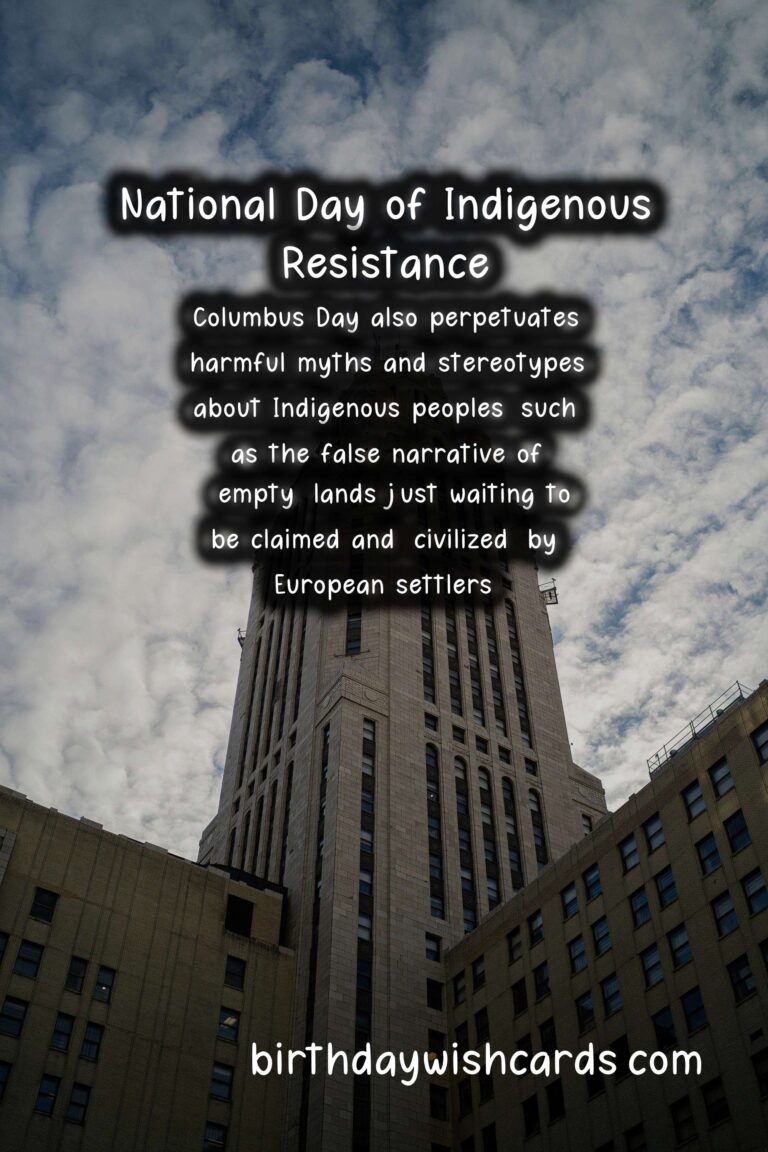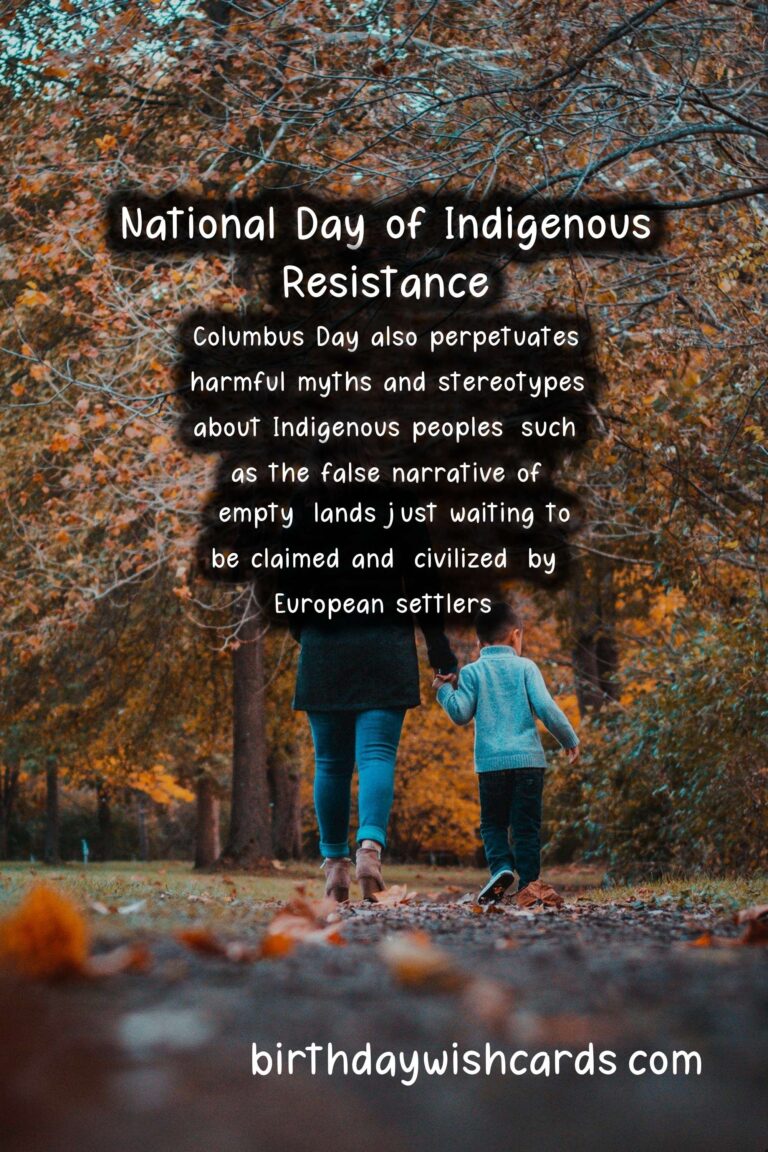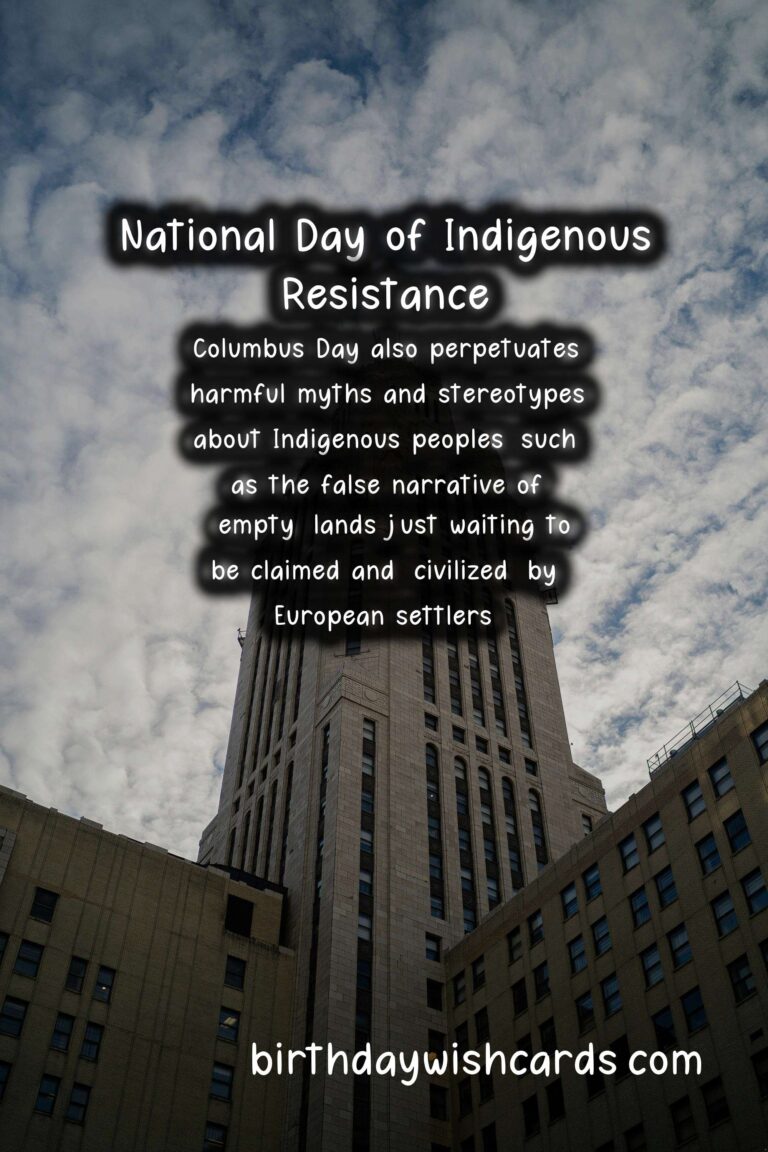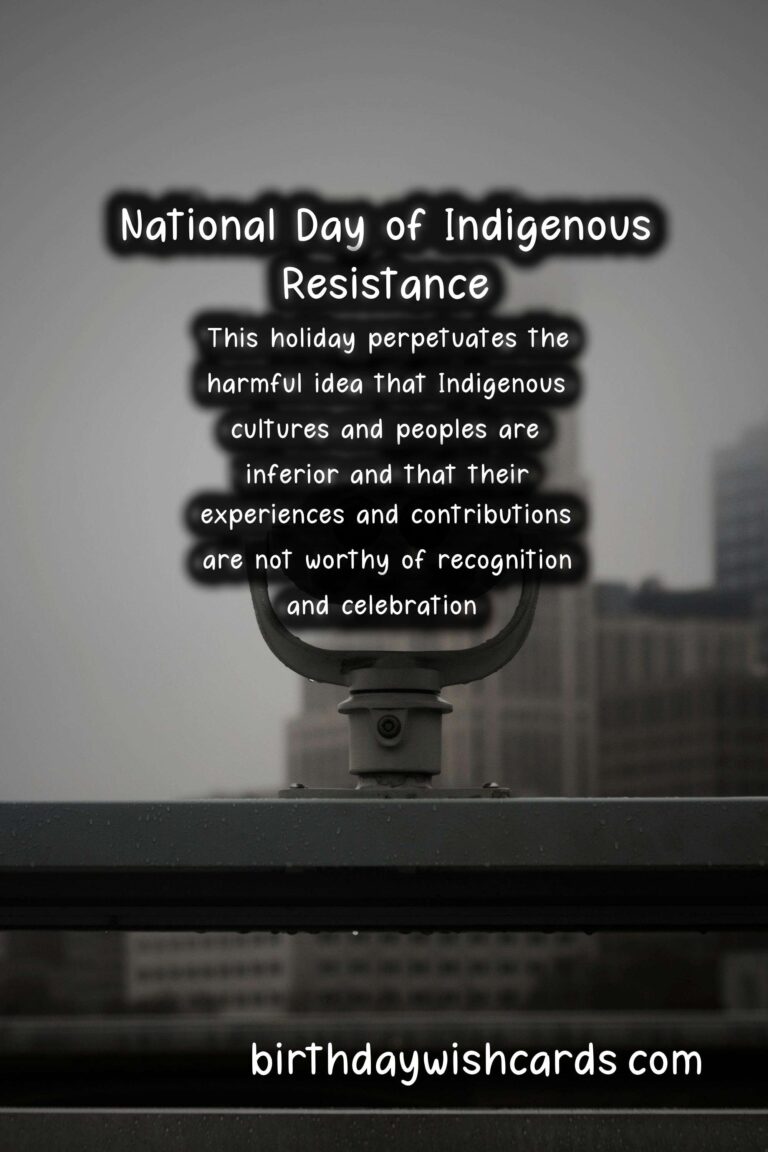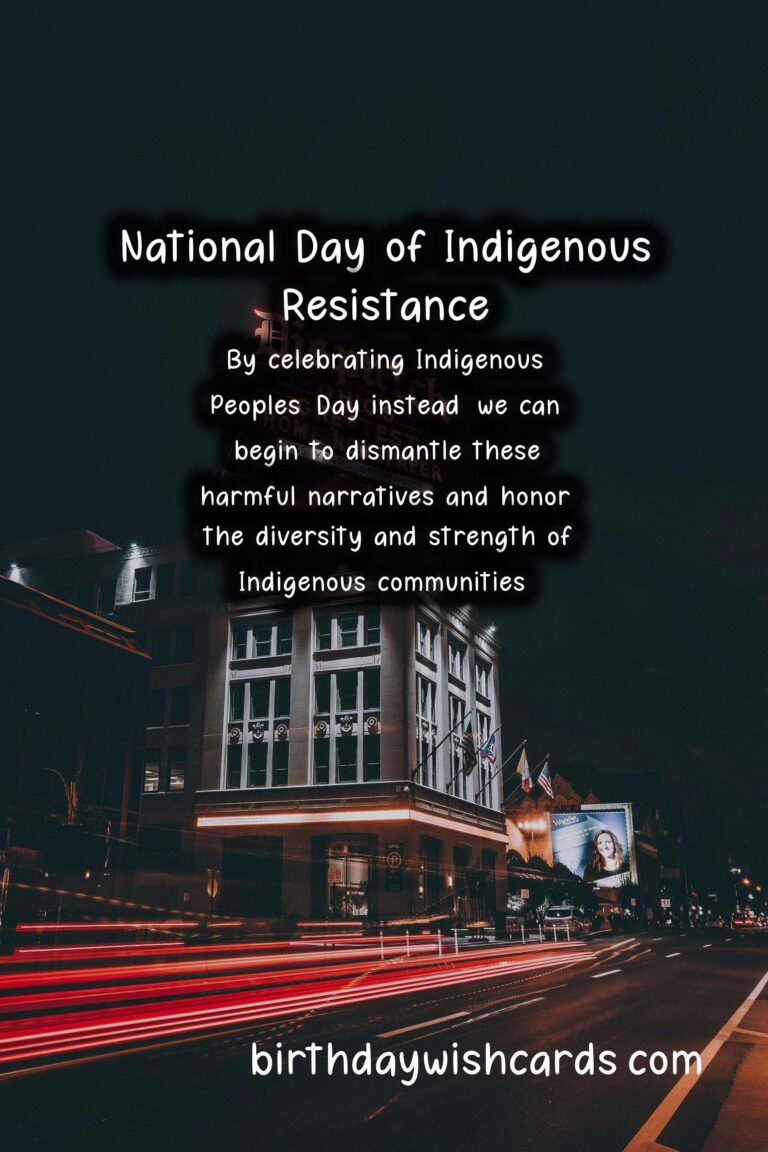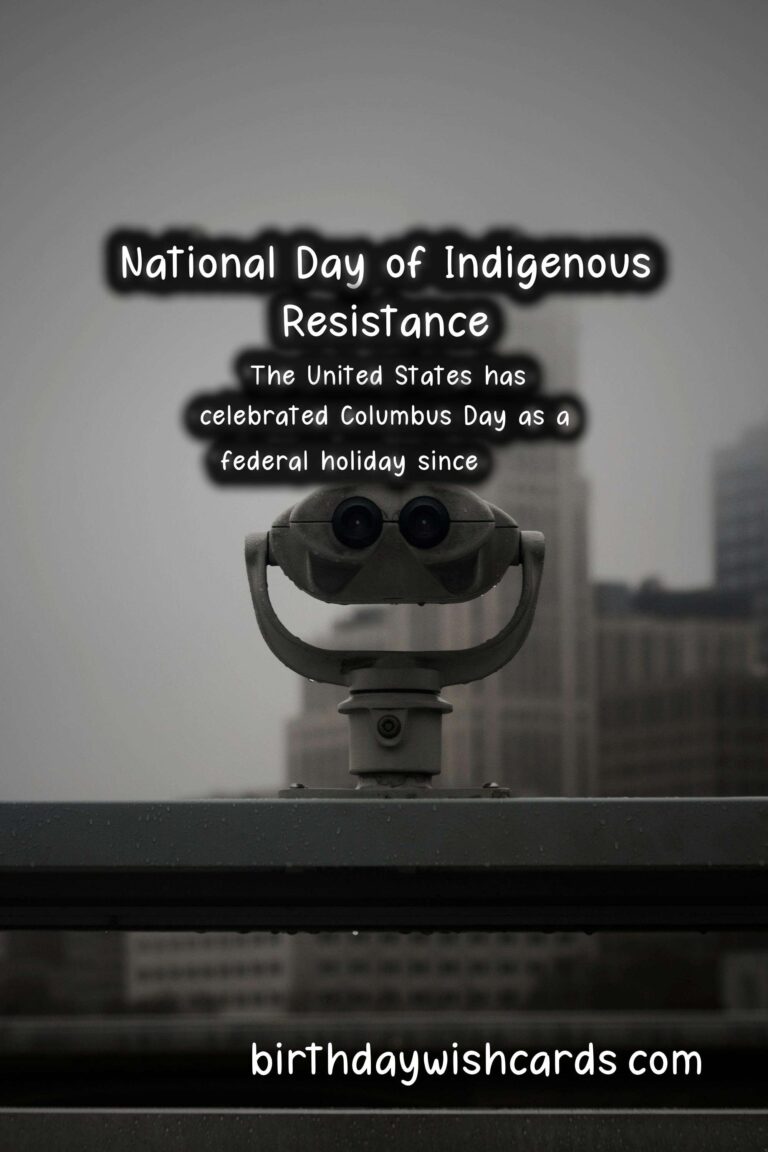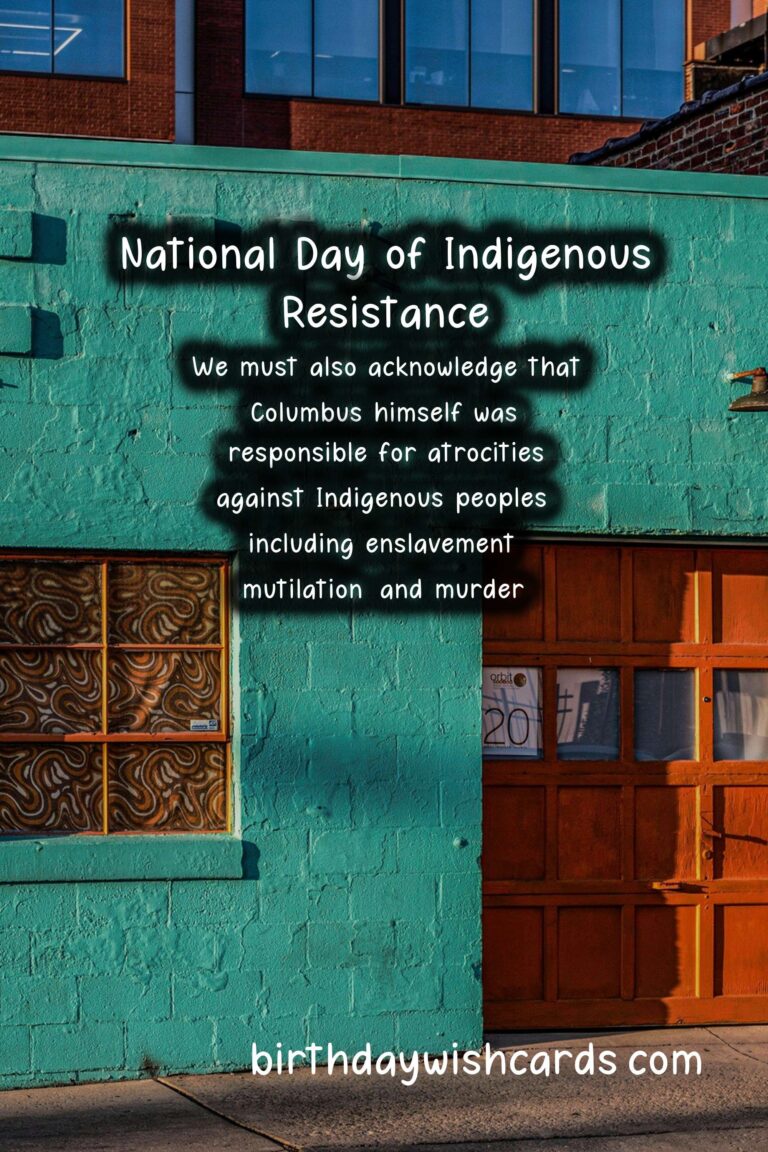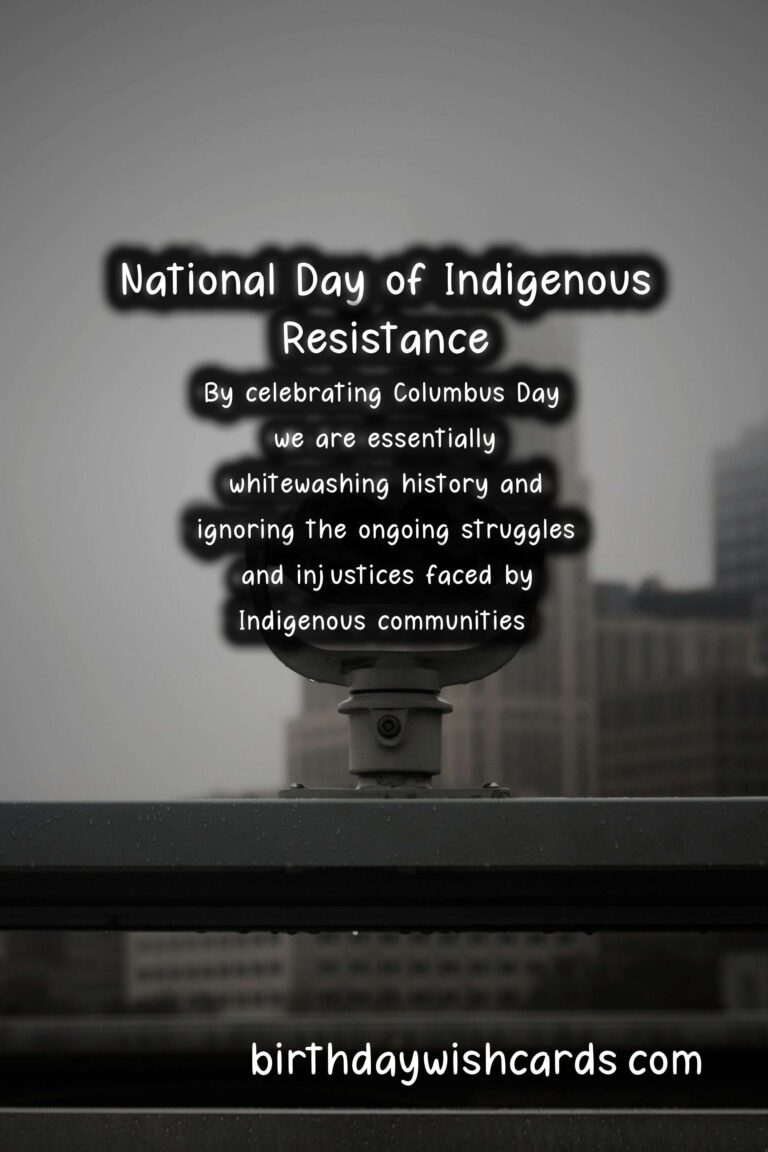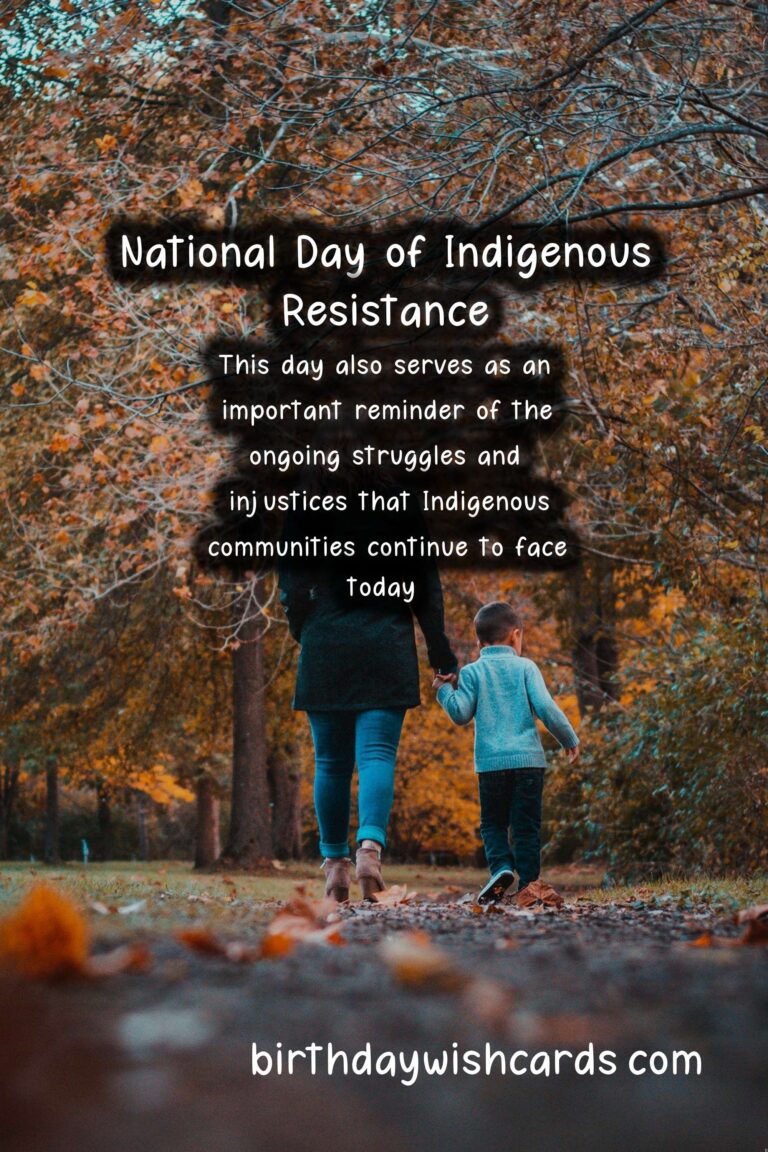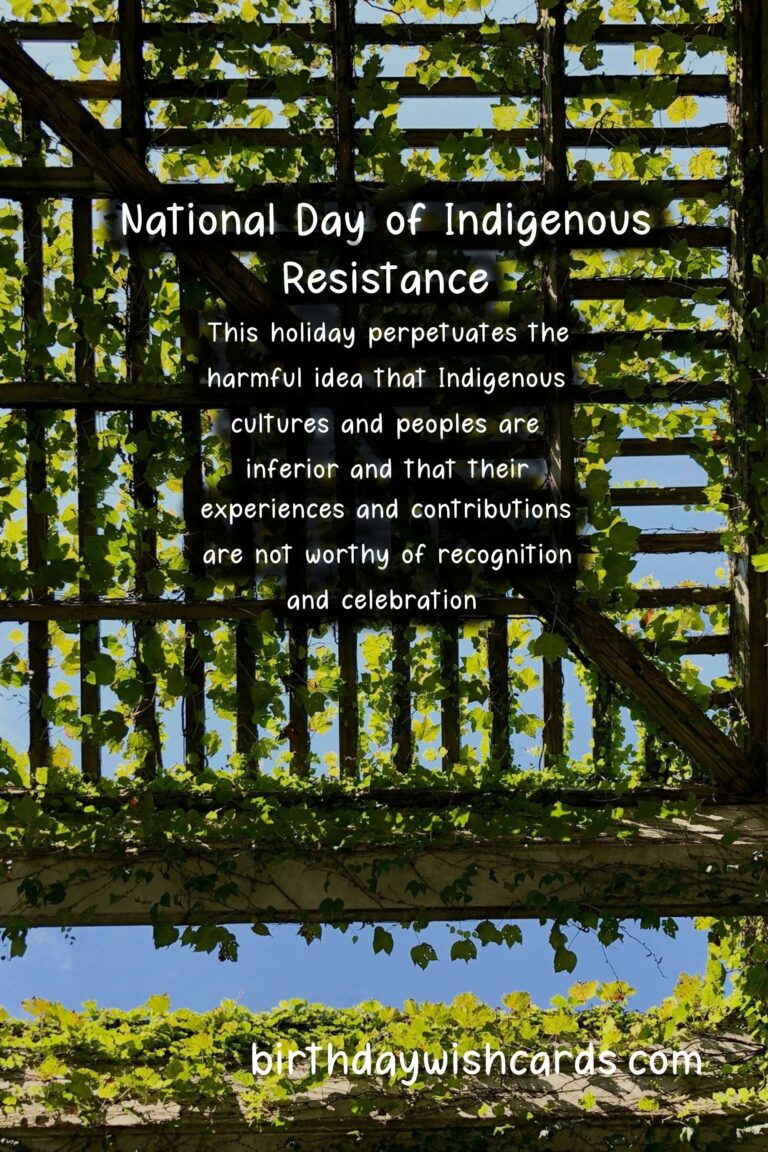 On October 12, many Americans will celebrate Columbus Day, a federal holiday that commemorates the explorer Christopher Columbus’s arrival in the Americas in 1492. However, for many Indigenous peoples across the continent, this day represents the beginning of centuries of oppression, violence, and genocide. The holiday has sparked significant controversy and calls for it to be replaced with Indigenous Peoples’ Day, also known as National Day of Indigenous Resistance. Let’s delve into the history and controversy surrounding October 12: Columbus Day/National Day of Indigenous Resistance and its ongoing impact on Indigenous communities. The United States has celebrated Columbus Day as a federal holiday since 1937. However, this holiday has long been a source of controversy and protests from Indigenous peoples and their allies. While Columbus is credited with “discovering” the Americas, this completely ignores the fact that Indigenous peoples had been living on these lands for thousands of years before his arrival. Moreover, Columbus’s arrival sparked centuries of colonization, exploitation, and violent conquest of Indigenous populations. We must also acknowledge that Columbus himself was responsible for atrocities against Indigenous peoples, including enslavement, mutilation, and murder. Columbus Day also perpetuates harmful myths and stereotypes about Indigenous peoples, such as the false narrative of “empty” lands just waiting to be claimed and “civilized” by European settlers. By celebrating Columbus Day, we are essentially whitewashing history and ignoring the ongoing struggles and injustices faced by Indigenous communities. In contrast, National Day of Indigenous Resistance honors the resilience and strength of Indigenous peoples in the face of colonization and oppression. This day also serves as an important reminder of the ongoing struggles and injustices that Indigenous communities continue to face today. Many cities and states, including Vermont, Alaska, and Oregon, have replaced Columbus Day with Indigenous Peoples’ Day, and the movement to recognize this day is gaining momentum. As more people learn about the true history of October 12, it is clear that the holiday is outdated and should be replaced with a more inclusive and accurate representation of this day. It is also important to note that Columbus Day is not just about Columbus himself, but also about the larger issue of colonialism and the ongoing erasure and oppression of Indigenous peoples. This holiday perpetuates the harmful idea that Indigenous cultures and peoples are inferior and that their experiences and contributions are not worthy of recognition and celebration. By celebrating Indigenous Peoples’ Day instead, we can begin to dismantle these harmful narratives and honor the diversity and strength of Indigenous communities. Moving forward, it is crucial for all of us to educate ourselves on the true history of October 12 and to support Indigenous communities in their fight for recognition, justice, and self-determination.
On October 12, many Americans will celebrate Columbus Day, a federal holiday that commemorates the explorer Christopher Columbus’s arrival in the Americas in 1492. However, for many Indigenous peoples across the continent, this day represents the beginning of centuries of oppression, violence, and genocide. The holiday has sparked significant controversy and calls for it to be replaced with Indigenous Peoples’ Day, also known as National Day of Indigenous Resistance. Let’s delve into the history and controversy surrounding October 12: Columbus Day/National Day of Indigenous Resistance and its ongoing impact on Indigenous communities. The United States has celebrated Columbus Day as a federal holiday since 1937. However, this holiday has long been a source of controversy and protests from Indigenous peoples and their allies. While Columbus is credited with “discovering” the Americas, this completely ignores the fact that Indigenous peoples had been living on these lands for thousands of years before his arrival. Moreover, Columbus’s arrival sparked centuries of colonization, exploitation, and violent conquest of Indigenous populations. We must also acknowledge that Columbus himself was responsible for atrocities against Indigenous peoples, including enslavement, mutilation, and murder. Columbus Day also perpetuates harmful myths and stereotypes about Indigenous peoples, such as the false narrative of “empty” lands just waiting to be claimed and “civilized” by European settlers. By celebrating Columbus Day, we are essentially whitewashing history and ignoring the ongoing struggles and injustices faced by Indigenous communities. In contrast, National Day of Indigenous Resistance honors the resilience and strength of Indigenous peoples in the face of colonization and oppression. This day also serves as an important reminder of the ongoing struggles and injustices that Indigenous communities continue to face today. Many cities and states, including Vermont, Alaska, and Oregon, have replaced Columbus Day with Indigenous Peoples’ Day, and the movement to recognize this day is gaining momentum. As more people learn about the true history of October 12, it is clear that the holiday is outdated and should be replaced with a more inclusive and accurate representation of this day. It is also important to note that Columbus Day is not just about Columbus himself, but also about the larger issue of colonialism and the ongoing erasure and oppression of Indigenous peoples. This holiday perpetuates the harmful idea that Indigenous cultures and peoples are inferior and that their experiences and contributions are not worthy of recognition and celebration. By celebrating Indigenous Peoples’ Day instead, we can begin to dismantle these harmful narratives and honor the diversity and strength of Indigenous communities. Moving forward, it is crucial for all of us to educate ourselves on the true history of October 12 and to support Indigenous communities in their fight for recognition, justice, and self-determination. 
